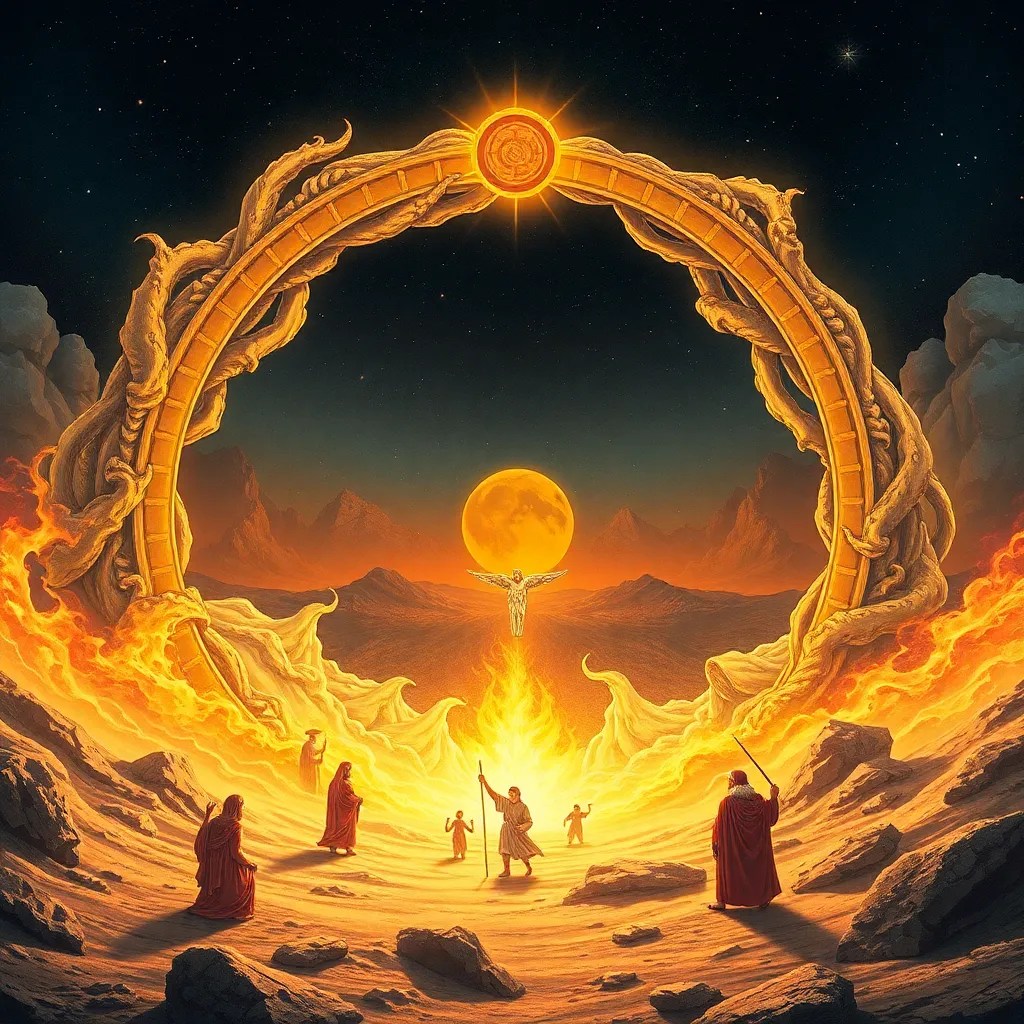The Creation of the World: A Comparative Study of Babylonian and Hebrew Myths
I. Introduction
Creation myths serve as foundational narratives that explain the origins of the world and humanity. Ancient cultures, including the Babylonians and Hebrews, developed rich mythological traditions that reflect their understanding of existence. These myths are crucial for comprehending how different societies perceive their origins and the cosmos. This comparative study aims to explore the Babylonian creation myth, Enuma Elish, alongside the Hebrew creation accounts found in Genesis, highlighting their similarities and differences.
II. Historical Context of Babylonian and Hebrew Myths
The Babylonian civilization, one of the most significant cultures in ancient Mesopotamia, thrived between the 18th and 6th centuries BCE. Their religious practices were polytheistic, venerating a pantheon of gods, each with specific roles in the cosmos.
In contrast, ancient Hebrew culture, which developed around the same time, evolved from polytheistic roots to a strict monotheism. The theological developments in Hebrew culture were significantly influenced by historical events such as the Babylonian Exile, which shaped their understanding of God and creation.
The historical contexts of both civilizations profoundly impacted their mythological narratives, revealing insights into their societal values and beliefs.
III. The Babylonian Creation Myth: Enuma Elish
The Enuma Elish is a primary Babylonian creation myth that describes the genesis of the world and the establishment of order from chaos. The narrative begins with the primordial waters, represented by two entities: Apsu (fresh water) and Tiamat (salt water). Their union gives birth to several deities, but the younger gods disrupt Apsu’s peace, prompting him to plot their destruction.
Marduk, the chief god of Babylon, rises to power by defeating Tiamat in a cosmic battle. After her defeat, Marduk uses her body to create the heavens and the earth, establishing order and governance among the gods.
Key deities in this narrative include:
- Marduk: The hero who overcomes chaos and establishes order.
- Tiamat: The primordial goddess representing chaos and the ocean.
- Apsu: The god of fresh water, symbolizing primordial chaos.
The themes of chaos versus order, the importance of divine authority, and the creation of humanity for the service of the gods are central to the Enuma Elish.
IV. The Hebrew Creation Myth: Genesis 1-2
The Hebrew creation accounts in Genesis present a different perspective on the origins of the world. Genesis 1 describes a systematic creation process over six days, culminating in the creation of humanity, while Genesis 2 provides a more intimate account of the creation of Adam and Eve.
Key figures in these narratives include:
- God: The singular, omnipotent creator responsible for all existence.
- Adam: The first human, created from the dust of the ground.
- Eve: The first woman, created from Adam’s rib, symbolizing partnership and equality.
Themes in the Hebrew creation story include the goodness of creation, the relationship between humanity and the divine, and the concept of stewardship over the earth.
V. Comparative Analysis of Creation Themes
A comparative study reveals vital themes shared and diverged in both myths:
- Chaos and Order: Both myths begin with chaos—Tiamat in Babylonian mythology and the formless void in Hebrew tradition. However, their resolutions differ; Marduk’s victory is a violent conquest, while God’s creation is a deliberate, peaceful act.
- Role of Divine Beings: In Enuma Elish, multiple deities interact in complex relationships, while Genesis emphasizes the singularity of God as the ultimate authority.
- Humanity’s Role: In Babylonian mythology, humans are created to serve the gods, contrasting sharply with the Hebrew view of humanity, which emphasizes a unique relationship with God and stewardship of creation.
VI. The Role of Creation in Cultural Identity
Creation myths play a pivotal role in shaping societal values and beliefs. For the Babylonians, the Enuma Elish reinforced the importance of Marduk as a symbol of order and justice, reflecting their societal structure under his patronage. The myth also legitimized the Babylonian kings’ authority, drawing parallels between their rule and Marduk’s cosmic governance.
Conversely, the Hebrew creation story emphasizes the moral responsibility of humans, encouraging values such as stewardship, community, and relationship with the divine. These creation narratives profoundly influenced laws, moral codes, and governance within their respective cultures.
VII. Influence and Legacy of the Myths
The transmission of Babylonian and Hebrew myths through history has left a lasting legacy. The Enuma Elish influenced various cultures, including the Greeks, reflecting its significance in ancient literature. Similarly, the Hebrew creation account shaped Western religious thought, becoming foundational in Judaism, Christianity, and Islam.
Cross-cultural influences are evident in adaptations of these myths in later traditions, demonstrating the universality of creation themes. In contemporary discussions, these creation stories continue to resonate, prompting reflections on existence, ethics, and environmental stewardship.
VIII. Conclusion
This comparative study highlights the rich tapestry of creation myths in Babylonian and Hebrew traditions, illustrating their unique perspectives on the origins of the world and humanity. While both myths address fundamental questions of existence, their differences reflect deeper cultural values and beliefs.
The enduring significance of these narratives invites further exploration of mythological themes and their relevance in today’s world. Future research may delve into how these ancient stories continue to shape modern understandings of creation, identity, and morality.



